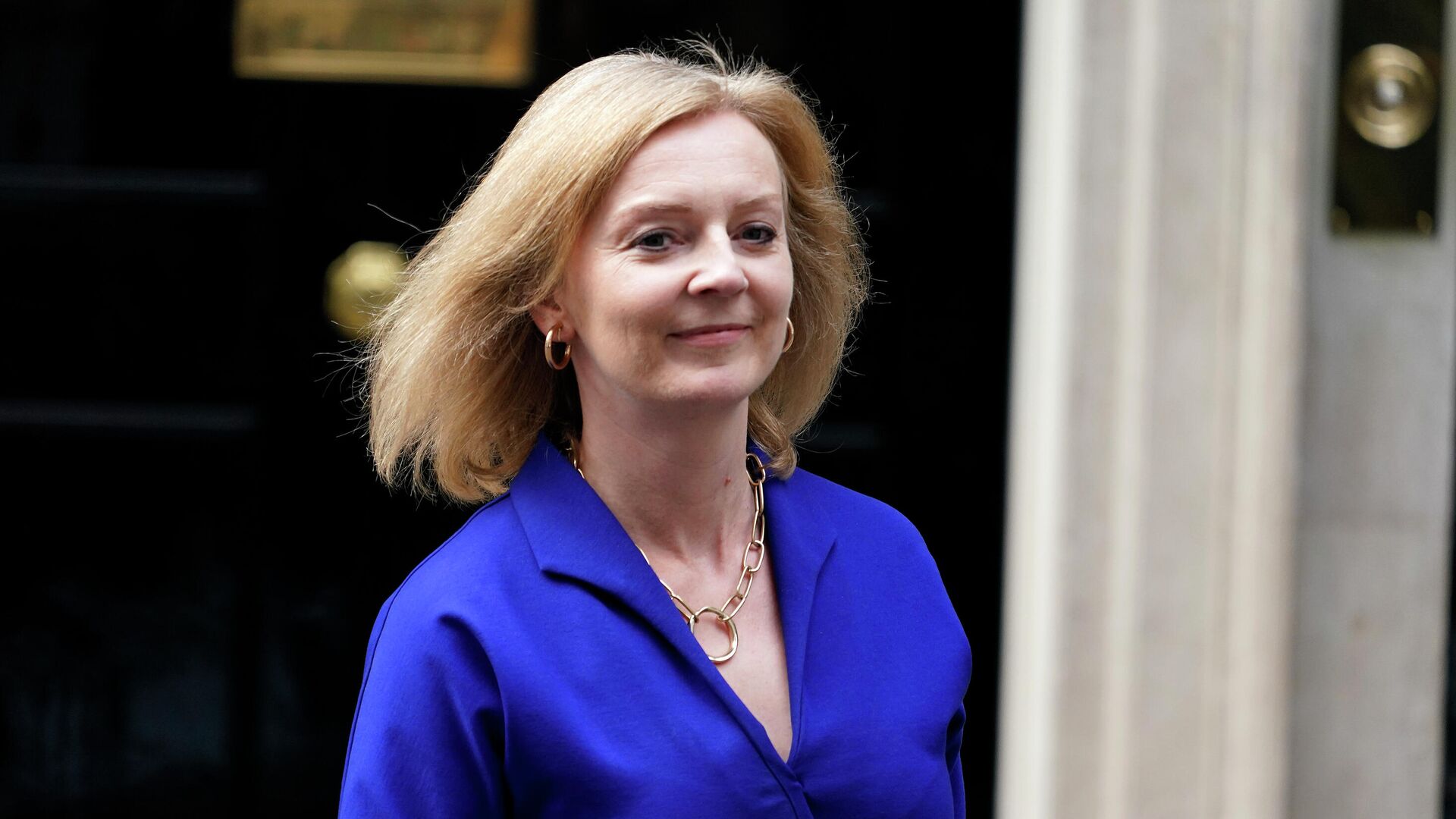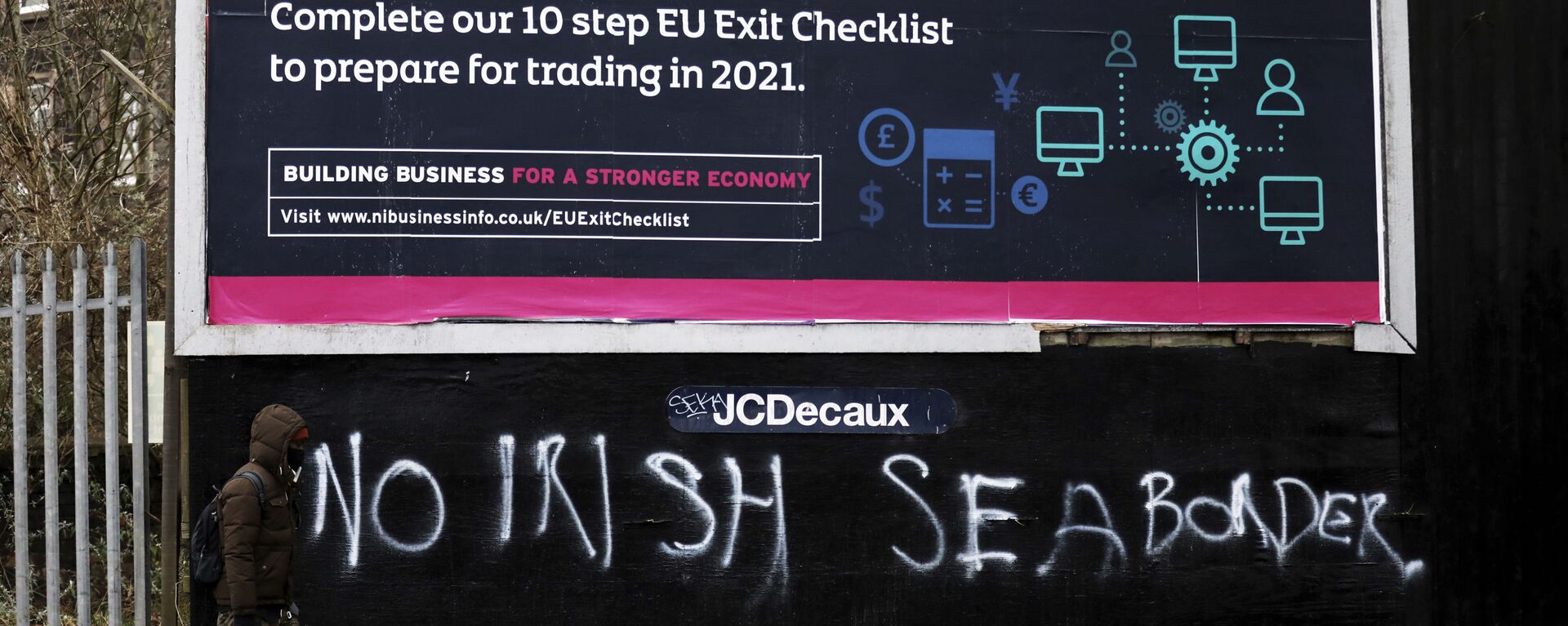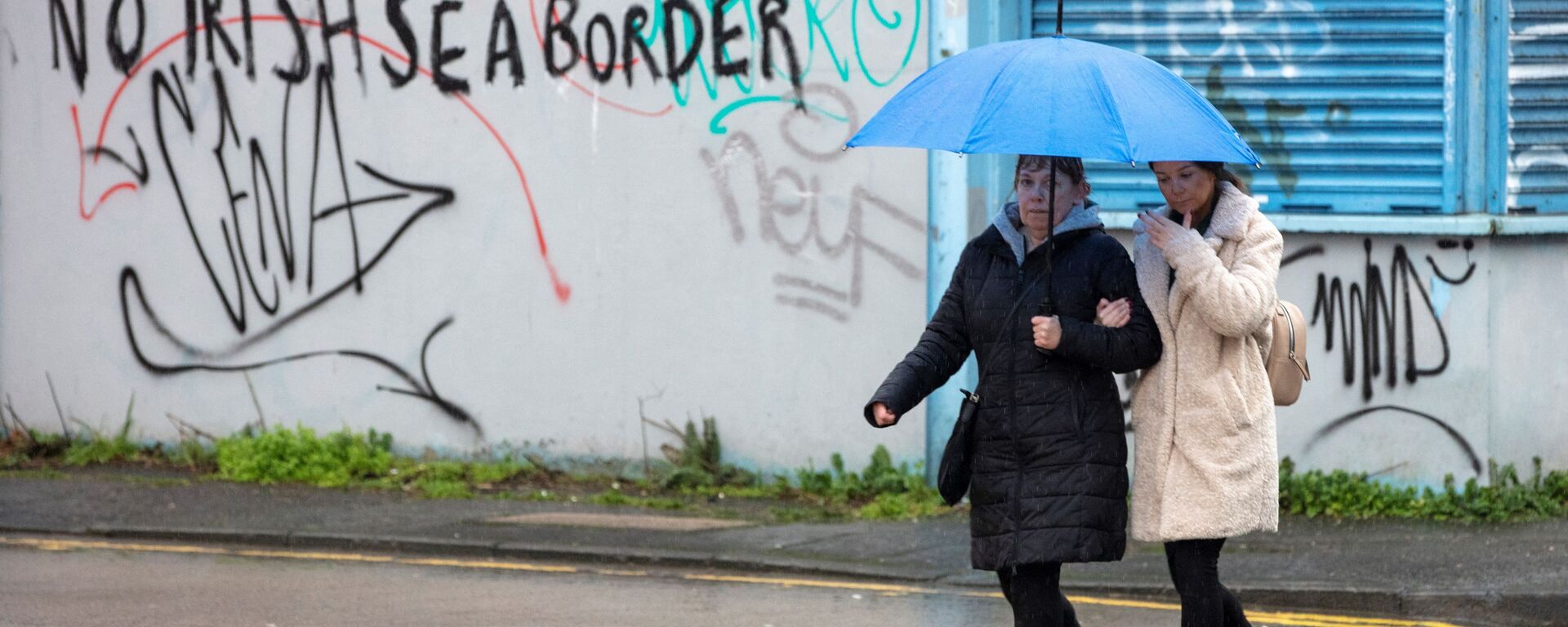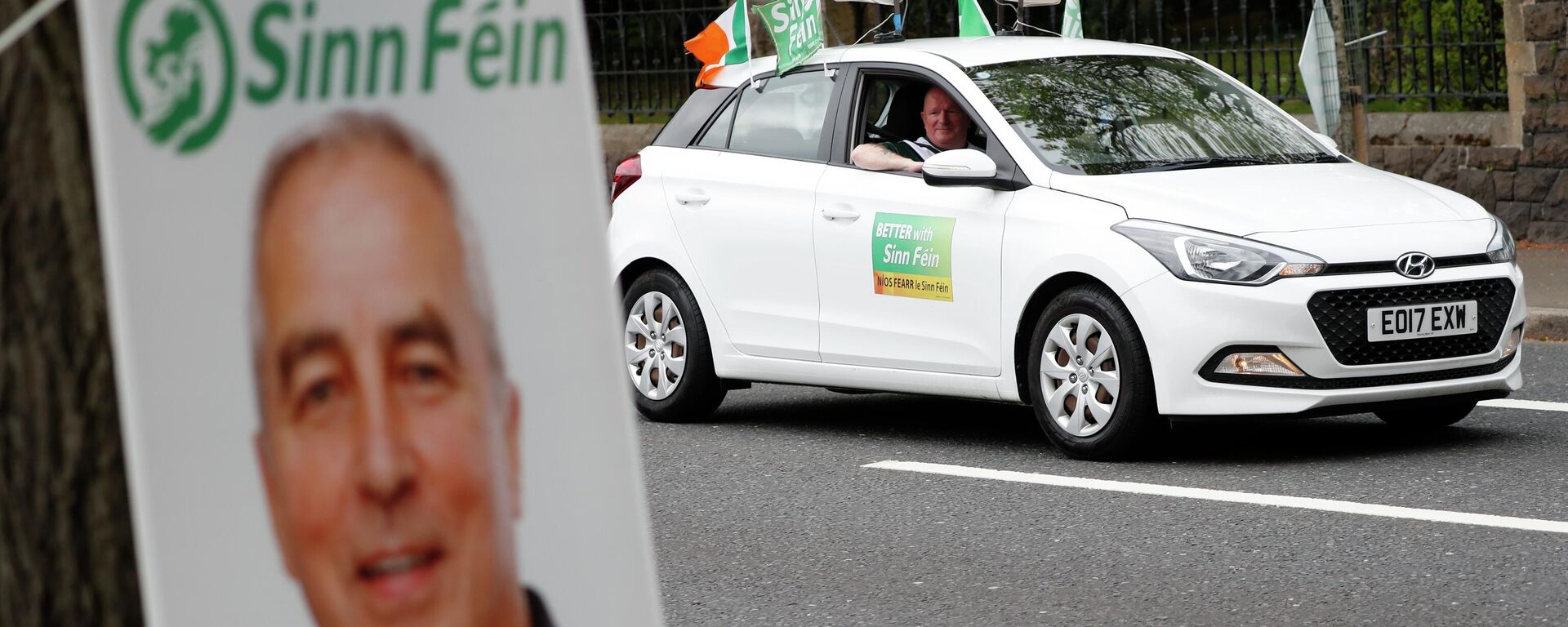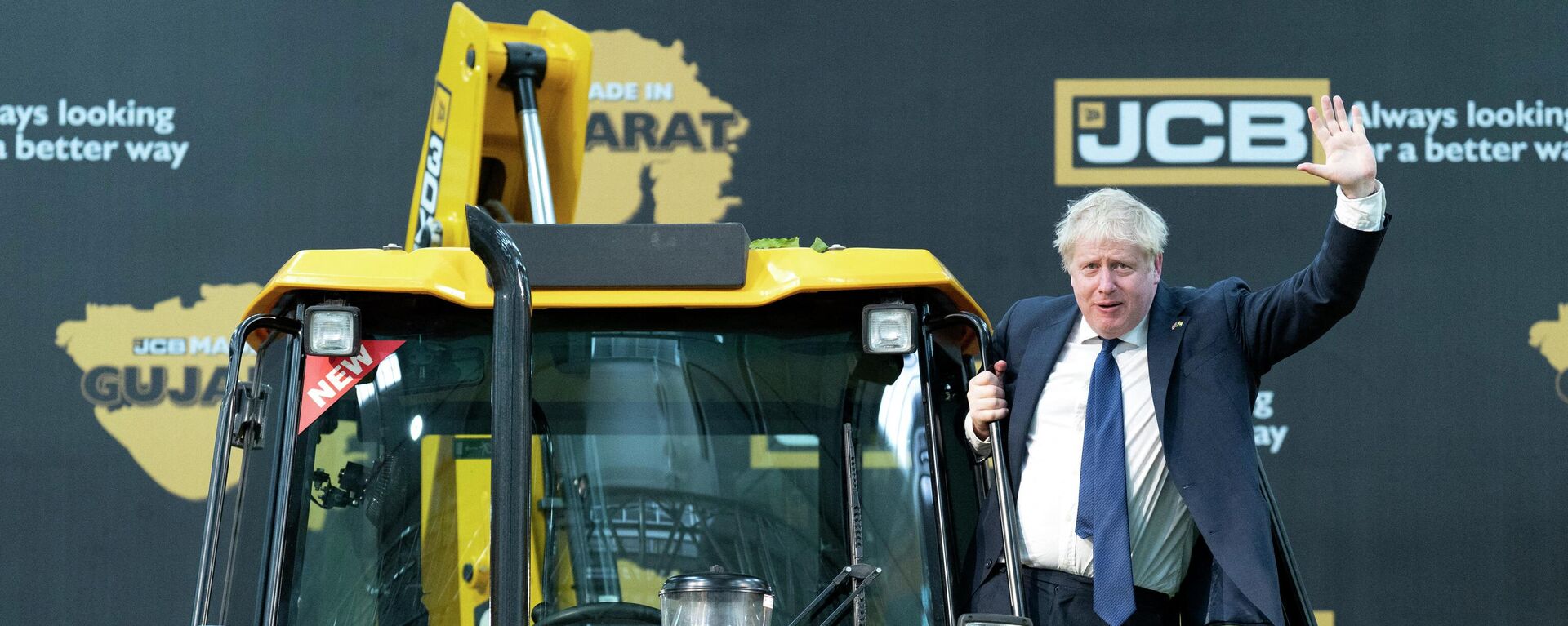https://sputnikglobe.com/20220512/bad-for-irish-peace--uk-influence-senior-tories-warn-liz-truss-against-ditching-ni-protocol-1095451687.html
'Bad for Irish Peace & UK Influence’: Senior Tories Warn Liz Truss Against Ditching NI Protocol
'Bad for Irish Peace & UK Influence’: Senior Tories Warn Liz Truss Against Ditching NI Protocol
Sputnik International
The UK on Wednesday rejected European Union proposals to resolve the stand-off over the Northern Ireland protocol, with Foreign Secretary Liz Truss saying that... 12.05.2022, Sputnik International
2022-05-12T06:10+0000
2022-05-12T06:10+0000
2023-05-28T15:19+0000
liz truss
northern ireland protocol
brexit
united kingdom (uk)
https://cdn1.img.sputnikglobe.com/img/07e5/0c/15/1091689253_0:0:2933:1651_1920x0_80_0_0_45f99d2e97c5c8af998dee592ffdaa52.jpg
UK Foreign secretary Liz Truss has been urged not to tear up the Northern Ireland protocol and warned that it could provoke a trade war with the European Union. The move to jettison unilaterally the post-Brexit agreement between London and Brussels on trade in Northern Ireland could stir up a major Tory rebellion, according to sources cited by The Guardian.Between 30 and 50 Conservative MPs were reportedly not prepared to vote for draft legislation that would scrap checks on goods between Great Britain and Northern Ireland and take away the European Court of Justice's oversight role concerning issues relating to NI.Furthermore, a number of ministers were prepared to quit if faced with passing into law the Bill that would be in breach of an international treaty, senior MPs are said to have warned.The warnings came as Truss prepared for crunch talks with European Commission vice-president Maros Sefcovic on Thursday, where she reportedly planned to offer the EU a 72-hour deadline to move on the issue of border checks.Contentious NI ProtocolThe row over the Northern Ireland Protocol has been a stumbling block throughout London’s negotiations with Brussels over post-Brexit trade rules. On numerous occasions Downing Street threatened to ditch the measure that was part of the Brexit withdrawal agreement and kept Northern Ireland within the EU's Common Market on the pretext of avoiding a "hard border" with the Republic of Ireland.But until now, never has London come so close to acting on its threats, with draft legislation already reportedly drawn up by officials working for Truss, and could be revealed next Tuesday.No Bill was announced in the Queen’s Speech on Tuesday, and sources close to the UK Foreign Secretary have stressed that no final decision has been made, adding that possible legislation was intended to run “in parallel” with further talks. Nevertheless, the backlash has already been gaining traction.The Northern Ireland protocol was conceived to avoid checks on goods crossing the politically sensitive border between Northern Ireland - part of the United Kingdom - and the Republic of Ireland, which remains part of the European Union. As a compromise measure to avoid a “hard border” within the island of Ireland - which the Dublin government and opponents of Brexit argue would constitute a breach of the 1999 Good Friday Agreement that ended the Northern Ireland conflict - a border in the Irish Sea was in effect set up.However, the UK government has been seeking an overhaul of the NI protocol, claiming post-Brexit checks on goods were having a disruptive effect on trade.Last October, Brussels proposed easing customs checks, but this offer was rejected by the UK, with Liz Truss saying on Wednesday that it failed to tackle the core problem, “and in some cases would take us backward”.Similarly, on Wednesday, UK Prime Minister Boris Johnson insisted that the Northern Ireland protocol needed to be fixed.The UK Attorney-General, Suella Braverman, has reportedly approved plans to scrap swathes of the protocol, maintaining the Good Friday agreement has greater clout than the protocol, according to The Times.Furthermore, a recent announcement made by Northern Ireland’s Democratic Unionist Party (DUP) has reportedly been cited as justification for the new strategy. Sinn Fein, the Irish republican political party, triumphed in elections on 5 May with 27 votes in the 90-seat assembly, and the DUP came second, winning 25 seats. Because neither has a majority, power-sharing rules dictate that the executive cannot be formed unless the DUP nominates a deputy first minister and other ministers. However, DUP leader Sir Jeffrey Donaldson rejected appeals by the UK and Irish governments, insisting he would block the formation of a new power-sharing administration in Northern Ireland unless “decisive action” was taken on the Brexit protocol. And on 9 May Donaldson reiterated his election campaign promise, telling the Northern Ireland Secretary, Brandon Lewis, “until we get decisive action taken by the UK government on the protocol, we will not be nominating ministers to the executive."‘Bad for British Influence’The reports have triggered an avalanche of warnings from Conservative lawmakers and “flabbergasted” officials in Brussels.In Westminster, MPs were cited as saying there was strong opposition forming against the reported draft Bill.Tobias Ellwood, chairman of the defence select committee, told UK media that the move would be “bad for Irish peace, bad for British influence and bad for jobs and living standards”.The chairman of the Commons Northern Ireland committee, Simon Hoare, denounced what he described as Truss'' “sabre-rattling” by Truss.Some MPs suggested the proposed Bill could be a “negotiating tactic”.There was a “huge difference between making preparatory steps as a negotiating tactic - which some would understand - and going as far as to whip colleagues to break from an international treaty,” one MP reportedly said.Chancellor Rishi Sunak was also believed to be opposed to such a measure, which could suspend the free-trade agreement. “The last thing the Treasury needs is pressure on supply chains,” added an insider.Concerns have been voiced by EU leaders, with Simon Coveney, the Irish foreign affairs minister, saying that Truss’ briefing to the press on Tuesday had gone down “really badly” in Europe. He warned that Brussels would launch legal action and possibly impose “countermeasures”, such as litigation against the UK, potentially imposing tariffs on British goods or suspending the EU-UK free-trade agreement.
https://sputnikglobe.com/20220510/uk-reportedly-set-to-unilaterally-scrap-chunks-of-ni-protocol-unless-eu-backs-down-on-border-checks-1095388381.html
https://sputnikglobe.com/20220510/german-chancellor-scholz-rules-out-deal-with-uk-on-northern-ireland-protocol-1095401322.html
https://sputnikglobe.com/20220508/uk-has-never-been-under-greater-threat-amid-sinn-fein-victory-ex-northern-ireland-secretary-says-1095348397.html
https://sputnikglobe.com/20220422/boris-johnson-says-ni-protocol-issues-getting-more-acute-vows-to-fix-them-one-way-or-another-1094978295.html
united kingdom (uk)
Sputnik International
feedback@sputniknews.com
+74956456601
MIA „Rossiya Segodnya“
2022
News
en_EN
Sputnik International
feedback@sputniknews.com
+74956456601
MIA „Rossiya Segodnya“
Sputnik International
feedback@sputniknews.com
+74956456601
MIA „Rossiya Segodnya“
liz truss, northern ireland protocol, brexit, united kingdom (uk)
liz truss, northern ireland protocol, brexit, united kingdom (uk)
'Bad for Irish Peace & UK Influence’: Senior Tories Warn Liz Truss Against Ditching NI Protocol
06:10 GMT 12.05.2022 (Updated: 15:19 GMT 28.05.2023) The UK on Wednesday rejected European Union proposals to resolve the stand-off over the Northern Ireland protocol, with Foreign Secretary Liz Truss saying that Brussels’ offer of easing customs checks failed to tackle the core problem. She added that Britain would “not shy away from taking action” to stabilise the situation.
UK Foreign secretary Liz Truss has been urged not to
tear up the Northern Ireland protocol and warned that it could provoke a trade war with the European Union. The move to jettison unilaterally the post-Brexit agreement between London and Brussels on trade in Northern Ireland could stir up a major Tory rebellion, according to sources cited by The Guardian.
Between 30 and 50 Conservative MPs were reportedly not prepared to vote for draft legislation that
would scrap checks on goods between Great Britain and Northern Ireland and take away the European Court of Justice's oversight role concerning issues relating to NI.
Furthermore, a number of ministers were prepared to quit if faced with passing into law the Bill that would be in breach of an international treaty, senior MPs are said to have warned.
The warnings came as Truss prepared for crunch talks with European Commission vice-president Maros Sefcovic on Thursday, where she reportedly planned to offer the EU a 72-hour deadline to move on the issue of border checks.
The
row over the Northern Ireland Protocol has been a stumbling block throughout London’s negotiations with Brussels over post-Brexit trade rules. On numerous occasions Downing Street threatened to ditch the measure that was part of the Brexit withdrawal agreement and kept Northern Ireland within the EU's Common Market on the pretext of avoiding a "hard border" with the Republic of Ireland.
But until now, never has London come so close to acting on its threats, with draft legislation already reportedly drawn up by officials working for Truss, and could be revealed next Tuesday.
No Bill was announced in the
Queen’s Speech on Tuesday, and sources close to the UK Foreign Secretary have stressed that no final decision has been made, adding that possible legislation was intended to run “in parallel” with further talks. Nevertheless, the backlash has already been gaining traction.
The Northern Ireland protocol was conceived to avoid checks on goods crossing the politically sensitive border between Northern Ireland - part of the United Kingdom - and the Republic of Ireland, which remains part of the European Union. As a compromise measure to avoid a “hard border” within the island of Ireland - which the Dublin government and opponents of Brexit argue would constitute a breach of the 1999 Good Friday Agreement that ended the Northern Ireland conflict - a border in the Irish Sea was in effect set up.
However, the UK government has been seeking
an overhaul of the NI protocol, claiming post-Brexit checks on goods were having a disruptive effect on trade.
Last October, Brussels proposed easing customs checks, but this offer was rejected by the UK, with Liz Truss saying on Wednesday that it failed to tackle the core problem, “and in some cases would take us backward”.
“Prices have risen, trade is being badly disrupted, and the people of Northern Ireland are subject to different laws and taxes than those over the Irish Sea, which has left them without a [governing] executive and poses a threat to peace and stability,” she said in a statement, adding that the Government would not “shy away from taking action to stabilise the situation in Northern Ireland if solutions cannot be found”.
Similarly, on Wednesday, UK Prime Minister Boris Johnson insisted that the Northern Ireland protocol needed to be fixed.
"The trouble with the protocol arrangements is they have been used and interpreted in such a way as to lose the confidence and the support of one important community in Northern Ireland. In those circumstances, we have to fix it ... I don't think there's any need for drama, this is something that needs to be fixed," Johnson told BBC TV.
The UK Attorney-General, Suella Braverman, has reportedly approved plans to scrap swathes of the protocol, maintaining the Good Friday agreement has greater clout than the protocol, according to The Times.
Furthermore, a recent announcement made by Northern Ireland’s Democratic Unionist Party (DUP) has reportedly been cited as justification for the new strategy. Sinn Fein, the Irish republican political party, triumphed in elections on 5 May with 27 votes in the 90-seat assembly, and the DUP came second, winning 25 seats. Because neither has a majority, power-sharing rules dictate that the executive cannot be formed unless the DUP nominates a deputy first minister and other ministers.
However, DUP leader Sir Jeffrey Donaldson rejected appeals by the UK and Irish governments, insisting he would block the formation of
a new power-sharing administration in Northern Ireland unless “decisive action” was taken on the Brexit protocol. And on 9 May Donaldson reiterated his election campaign promise, telling the Northern Ireland Secretary, Brandon Lewis, “until we get decisive action taken by the UK government on the protocol, we will not be nominating ministers to the executive."
‘Bad for British Influence’
The reports have triggered an avalanche of warnings from Conservative lawmakers and “flabbergasted” officials in Brussels.
In Westminster, MPs were cited as saying there was strong opposition forming against the reported draft Bill.
Tobias Ellwood, chairman of the defence select committee, told UK media that the move would be “bad for Irish peace, bad for British influence and bad for jobs and living standards”.
“Abandoning the protocol is self-defeating. It plays into Sinn Féin’s narrative that a united, peaceful Ireland is better for Northern Ireland. Binning the protocol will provoke a trade war with the EU … It will mean fewer movements of goods and higher inflation.”
The chairman of the Commons Northern Ireland committee, Simon Hoare, denounced what he described as Truss'' “sabre-rattling” by Truss.
Some MPs suggested the proposed Bill could be a “negotiating tactic”.
There was a “huge difference between making preparatory steps as a negotiating tactic - which some would understand - and going as far as to whip colleagues to break from an international treaty,” one MP reportedly said.
“As long as it’s posturing, it’s tolerable. If they go through with breaking the protocol, there will be opposition,” added another source.
Chancellor Rishi Sunak was also believed to be opposed to such a measure, which could suspend the free-trade agreement. “The last thing the Treasury needs is pressure on supply chains,” added an insider.
Concerns have been voiced by EU leaders, with Simon Coveney, the Irish foreign affairs minister, saying that Truss’ briefing to the press on Tuesday had gone down “really badly” in Europe. He warned that Brussels would launch legal action and possibly impose “countermeasures”, such as litigation against the UK, potentially imposing tariffs on British goods or suspending the EU-UK free-trade agreement.
